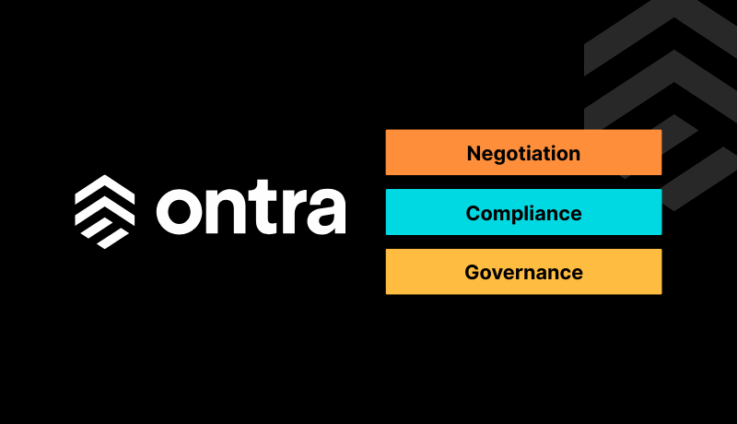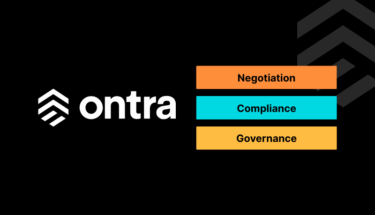As of this writing, the Corporate Transparency Act (CTA), legislation that passed with bipartisan support and was enacted on January 1, 2021, still languishes in limbo. Intended as a tool to fight money laundering, terrorism funding, and the use of shell companies for tax evasion, it was initially supposed to apply to every LLC, LP, and corporation in the U.S. (with a few exceptions).
It went into effect on January 1, 2024, and the original beneficial ownership information (BOI) reporting deadline for non-exempt entities was December 31, 2024. After a tsunami of legal challenges, though, the BOI reporting requirements now apply only to non-exempt foreign-registered companies.
How did we get here? This article digs into the CTA’s tumultuous journey through the court system and provides an overview of where the law stands now to provide some clarity during a time of uncertainty.
This article, while informative, is no substitute for legal advice. Check with your legal advisors regarding the current impact of the CTA.
Timeline of the CTA
The timeline of the CTA’s BOI reporting requirements has been a rollercoaster.
2019
- Representative Maloney introduced the Corporate Transparency Act of 2019, which differed from previous federal attempts to collect beneficial ownership information.
2020
- The Anti-Money Laundering Act of 2020, including the CTA, went into effect on January 1, 2021.
2021
- The Secretary of Treasury was required to prescribe regulations under the CTA by January 1, 2022.
2022
- FinCEN issued a final rule establishing beneficial ownership information reporting requirements on September 29, 2022.
2023
- FinCEN proposed a rule to extend the deadline for certain reporting companies for their initial BOI reports from 30 days to 90 days on September 27, 2023.
- FinCEN issued a final rule extending the reporting deadline for certain reporting companies created or registered in 2024 to 90 calendar days on November 29, 2023.
- FinCEN issued a final rule establishing the framework for access to and protection of BOI on December 21, 2023.
2024
- FinCEN began accepting BOI reports for newly created or registered non-exempt companies on January 1, 2024.
2025
- On January 31, 2025, President Trump issued Executive Order 14192 — “Unleashing Prosperity Through Deregulation,” which stated the administration was prioritizing deregulation.
- FinCEN announced on February 27, 2025, that it will not issue fines, penalties, or any other enforcement actions against companies based on a failure to file or update a BOI report by current deadlines.
- FinCEN announced on March 21, 2025, that it issued an interim final rule removing BOI reporting requirements from U.S. companies and U.S. persons consistent with the Treasury Department’s March 2, 2025 announcement.
Ongoing CTA litigation
“This sequence of events — from a strongly bipartisan law to abrupt regulatory rollback — is something I have not seen before, nor did I expect,” commented one accountant, writing in Forbes in May 2025
Significant litigation has included, but is not limited to:
National Small Bus. United v Yellen: On March 1, 2024, the U.S. District Court for the Northern District of Alabama declared the CTA unconstitutional and permanently enjoined the government from enforcing the CTA against the plaintiffs, the National Small Business Association and Isaac Winkles. It did not issue a nationwide injunction. In response, FinCEN issued a notice stating it would not enforce the order against the NSBA or any of its members. The government filed a notice of appeal to the Eleventh Circuit, where the case underwent oral arguments in September 2024.
Texas Top Cop Shop v. Garland: On December 3, 2024, the U.S. District Court for the Eastern District of Texas issued a preliminary injunction preventing FinCEN from enforcing the CTA and its reporting requirements. The motions panel of the Fifth Circuit lifted that injunction on December 23, 2024. However, on December 26, 2024, the merits panel of the Fifth Circuit reinstated the injunction, suspending filing obligations again. On January 23, 2025, the U.S. Supreme Court granted a temporary stay of the preliminary injunction issued by the district court.
Smith v. U.S. Department of the Treasury: On January 7, 2025, the U.S. District Court for the Eastern District of Texas issued a nationwide injunction against enforcement of the CTA’s reporting rule. On February 5, 2025, the government moved for a stay of the injunction in the District Court and filed notice of appeal to the Fifth Circuit. The District Court stayed its injunction pending the appeal in the Fifth Circuit, where the case remains.
Does the CTA apply to private fund managers?
US-registered funds
If the LLC, LP, or corporation that manages the fund is registered in the U.S., the CTA does not currently apply to it. The home page of the Treasury’s Financial Crimes Enforcement Network (FinCEN), which is charged with collecting the information, currently states:
“All entities created in the United States…and their beneficial owners are now exempt from the requirement to report BOI to FinCEN.”
Foreign-registered funds
But the CTA does apply to foreign-registered companies doing business in the United States. Because U.S.-registered companies are not required to report, a foreign-registered company is called only a “reporting company.” The FinCEN home page defines them as:
“Only those entities formed under the law of a foreign country that have registered to do business in any U.S. State or tribal jurisdiction by filing a document with a secretary of state or similar office.”
Even these companies may be exempt if they conform to the definitions of a:
- Securities reporting issuer
- Governmental authority
- Bank
- Credit union
- Depository institution holding company
- Money services business
- Broker or dealer in securities
- Securities exchange or clearing agency
- Other Exchange Act-registered entity
- Investment company or investment adviser
- Venture capital fund adviser
- Insurance company
- State-licensed insurance producer
- Commodity Exchange Act-registered entity
- Accounting firm
- Public utility
- Financial market utility
- Pooled investment vehicle
- Tax-exempt entity
- Entity assisting a tax-exempt entity
- Large operating company
- Subsidiary of certain exempt entities
- Inactive entity
The exempt companies in this list are entities already subject to extensive public disclosure where BOI is well known.
Foreign pooled investment vehicles
The Interim rule published on March 21, 2025, changes an earlier special rule about pooled investment vehicles (PIVs), making most of them exempt from the CTA.
Foreign PIVs meeting certain requirements need not file BOI reports if the individuals exercising substantial control over the entity are U.S. persons. If at least one of those individuals is not a U.S. person, the vehicle must file a report to FinCEN with the information about the non-U.S. person with the greatest authority over the strategic management of the entity.
What must non-exempt companies report?
Basic entity information
- Full legal name of the reporting company
- All trade names, fictitious names, or doing business as names, regardless of whether the name is registered
- Street address of the company’s principal place of business
- The foreign jurisdiction of formation of the reporting company (as of March 21, 2025)
- State or tribal jurisdiction of formation
- IRS taxpayer identification number and employer identification number.
Beneficial owner information (BOI)
Companies must provide information about each beneficial owner or company applicant (the people who formed the company, if the company is new).
Beneficial owners are any individual who either:
- owns or controls at least 25% of the ownership interests in the reporting company, or
- exercises “substantial control” over the company.
Ownership interest includes equity, capital or profits interest, options, and simple agreements for future equity (SAFEs) and other convertible investments.
Substantial control is broadly defined and considers both title (senior officers, such as CEO, COO, CRO, general counsel, or president) and decision-making authority.
The required information for each of these individuals includes:
- Full legal name
- Date of birth
- Current residential address
- A unique identifying number from an acceptable identification document and the issuing jurisdiction, such as a passport.
Recall that as of March 26, 2025, only foreign-registered entities are required to report these data.
Once filed, this information requires updating as beneficial owners move or change positions. For a large organization, this might be an ongoing challenge.
Who can access BOI?
BOI reports are saved in a non-public database. Access is limited to federal agencies that work in national security, intelligence, and law enforcement, as well as authorized foreign officials and state and local officials that have received court authorization. To meet customer due diligence requirements, financial institutions and their regulators will be able to access this information as well.
What does all this mean for private fund managers?
The current status of the CTA is unresolved, unless a particular fund entity is a “reporting company” as defined above.
According to the American Bar Association, “as of now [March 2025], the CTA is not dead…which leaves unresolved a huge number of questions.” The ABA’s assessment of the state of the CTA revealed some [understandable] exasperation: “Perhaps by the time this article is published … it will be clear that there is an adult in the room directing a clear modification of the CTA’s reporting regimen in a format that is consistent with the statute and may be relied upon by those who are advising clients on CTA compliance. For the practicing bar and the millions of companies both subject to and endeavoring to comply with the CTA, it should never have come to this.”
As of August 2025, much still remains in limbo. FinCEN has not posted an update on its site since the March 21, 2025, alert, stating that BOI reporting was only required for foreign-registered companies.
Among the questions remaining are:
- Could FinCEN revive BOI reporting requirements for some U.S. entities?
- Could penalties be reinstated?
- How will information already collected be handled?
- How will the database affect the customer due diligence efforts of banks and financial institutions?
- Will CTA developments affect state-level BOI reporting rules?
What’s next?
FinCEN is expected to issue a final rule by the end of 2025.
The current administration’s decision not to enforce the CTA does not mean the statute has been repealed. It is still on the books, and it could be revived and enforced in the future.
Even if a fund entity is currently exempt, use the time wisely: Consider implementing technology that will store the necessary information for compliance and keep it up to date. That way, if a finalized version of the CTA is implemented, the fund manager can handle reporting with the click of a button.
Atlas: Enabling one-click BOI submissions
Atlas is Ontra’s AI-powered entity management solution for private markets and automates submissions of BOI. Leverage AI-enabled automated workflows to organize, manage, and share entity data, structure charts, and legal documents, creating a digital single source of truth. With Atlas, private markets firms can:
- Manage BOI for all entities in one AI-enabled platform.
- Designate which entities require CTA filings and which are exempt.
- Quickly reference key identity details required for BOI reporting.
- Make updates to beneficial ownership information that automatically apply across entities and structures.
- Automate FinCEN filing for non-CTA-exempt entities.
Schedule an Atlas demo today to start taking advantage of an AI-enabled solution that delivers up-to-date BOI information and automated filing.









